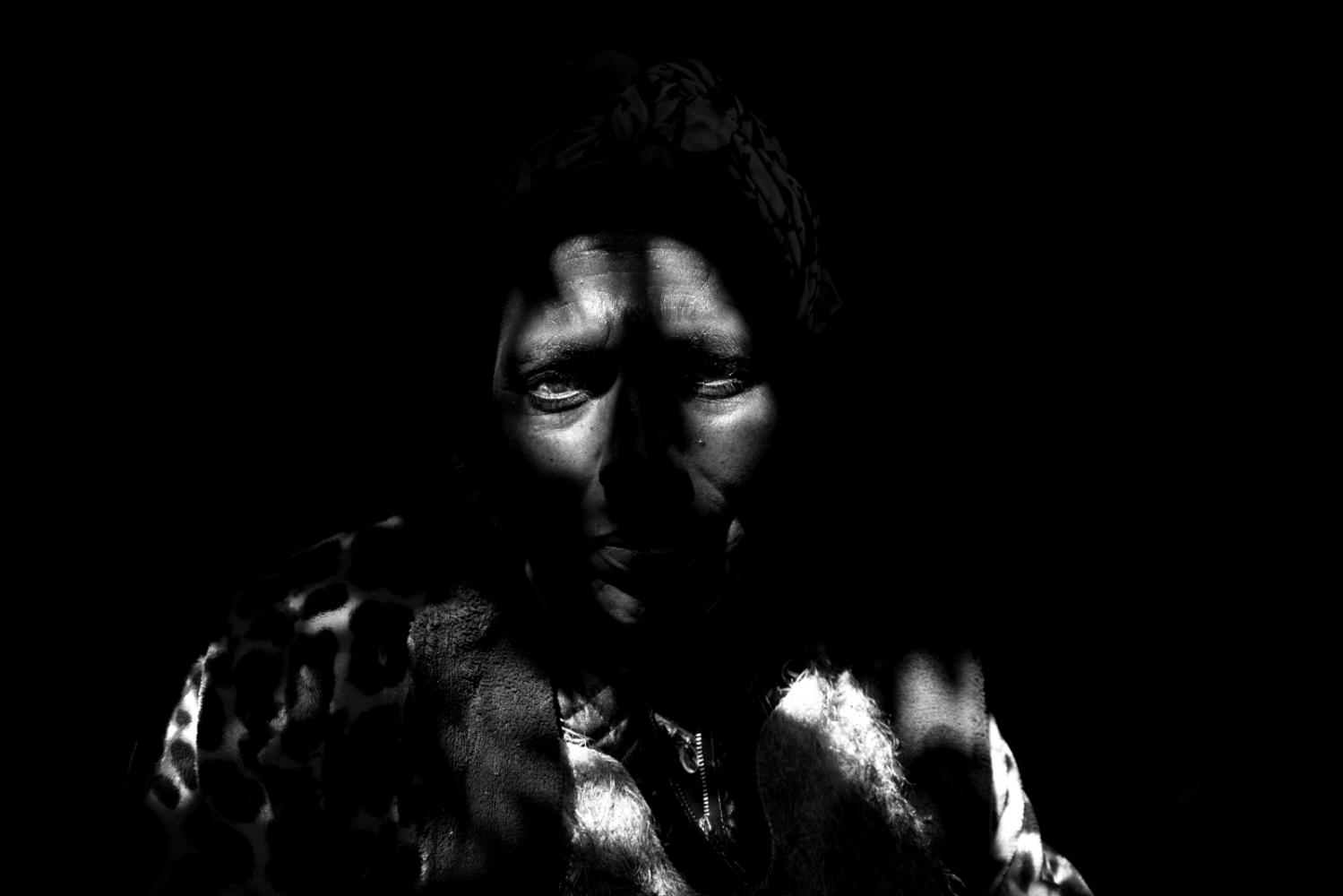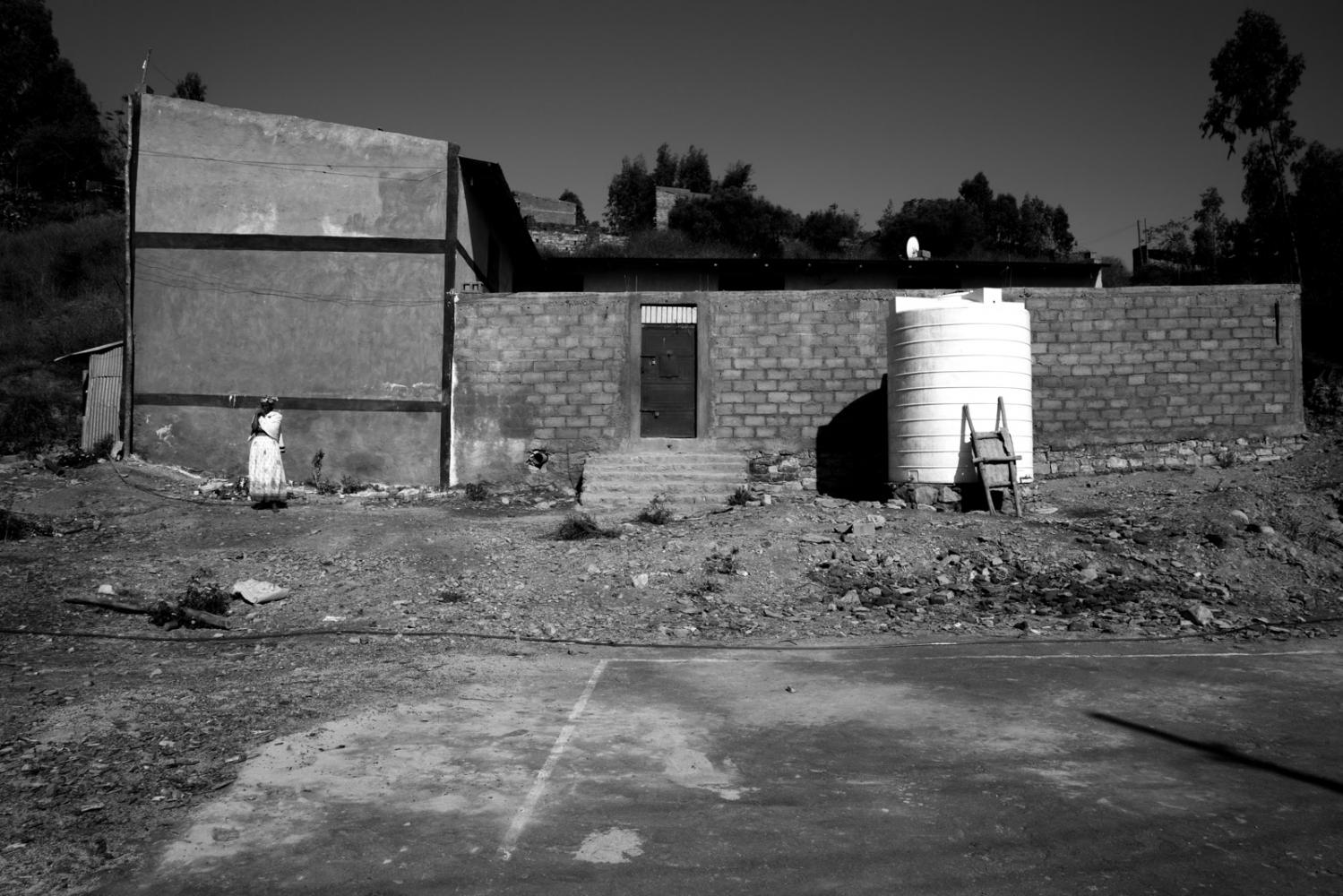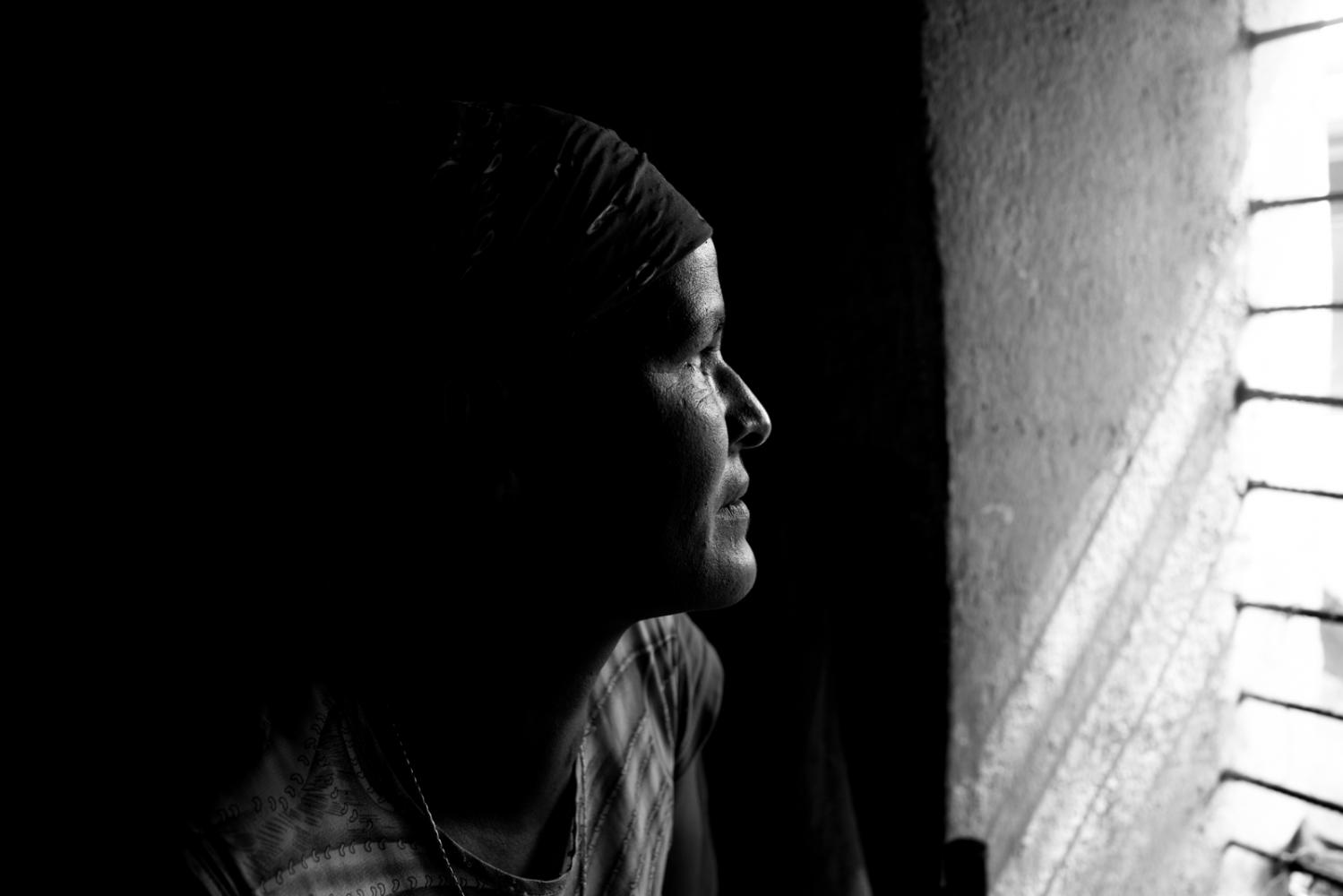Public Project
Prisoner mothers
The 14,9% of Ethiopia population has a criminal record and the 4,2% of it are women. Everyday the Ethiopian government pay only nine birrs (0,43$) and very little attention for their alimentation and health care. About 500 children live with this 4,2% inside the prisons, forced to follow their mothers behind bars, without an appropriate access to education, health care or infrastructure where to play. Small theft, assaults, unsolved debits are the most common crimes committed by the 34 Adwa’s prisoners women.
Azieb is 19 years old and she’s eight months pregnant. She has to serve one year and eight months for stealing a phone, she will give birth inside the prison. Georgis Z/Michael assaulted a man and she will be in prison for the next two years with her 5 years old daughter Desinet G/Meskel. Desinet has heart problems but she doesn’t get neither health care nor education. Elfnesh Agos beat up a man too. She still has four months to serve, but in the meanwhile her 6-years-old son was unable to begin his studies at the primary school. The ones that live in the right side of the bars could be considered luckier, but 12-years-old Kubrom, and his 7-years-old sister Meherawit have found their selves lost living without their mother after her imprisonment. Kubrom left the school to look after his sister, who started dating older men. Alem Berhe, the mother of the two children, has just got off the child trafficking charges and can now join her children outside the prison, but the women lucky as Alem are very few.
She’s a message of hope for the women that everyday see their dignity trampled by a prison system incapable of considering people as human beings.
They get one meal per day and it’s always the same dish. Enjera and shirò mark the days of the women and their children, who look like wandering souls with gloomy and vitreous eyes. The deprivation of mothers’ fundamental rights are applied without reduction to their children too, scapegoat of a battle for humanity fought on the skin of the weak ones.
Prisoners Mothers directs the point of view on this piece of forget humanity while drawing the attention on this faces, left behind too many times between worn-out camp beds and stagnant water.
Cosa significa essere donna e madre all’interno di un sistema incapace di fornire i diritti umani fondamentali per la persona?
In Etiopia il 14,9% della popolazione ha la fedina penale sporca e il 4,2% sono donne. Ogni giorno il governo etiope spende per la loro alimentazione e assistenza sanitaria soltanto nove birrs (0,43$) e pochissime attenzioni. Con questo 4,2% abitano anche circa 500 bambini, costretti a seguire le loro madri dietro le sbarre, senza un adeguato accesso a istruzione, servizi sanitari o strutture dove poter semplicemente giocare. Piccoli furti, violenza, debiti non pagati sono i crimini più frequenti commessi dalle 34 prigioniere di Adwa. Azieb ha 19 anni ed è incinta di otto mesi. Deve scontare un anno e otto mesi per aver rubato un cellulare, partorirà qui. Georgis Z/Michael ha picchiato un uomo e dovrà stare in carcere per i prossimi due anni con la figlia di 5 anni Desinet G/Meskel. Desinet ha problemi cardiaci ma non riceve cure, né va a scuola.
Anche Elfnesh Agos ha picchiato un uomo. Le restano da scontare quattro mesi, ma nel frattempo suo figlio di 6 anni non ha potuto iniziato a frequentare la scuola elementare. Quelli che vivono dalla parte giusta delle sbarre potrebbero dirsi più fortunati, ma Kubrom, 12 anni, e la sorella Meherawit di 7 si sono trovati a vivere allo sbando dopo l’arresto della madre. Kubrom ha lasciato la scuola per occuparsi della sorella, che ha iniziato a frequentare uomini più grandi, destando le preoccupazioni del fratello. Alem Berhe, la madre dei due bambini, è stata da poco assolta dalle accuse di traffico di minori e si è ripotuta congiungere ai figli, ma sono poche quella a cui tocca la sua sorte. Alem Berhe è un messaggio di speranza per le donne che si trovano tutti i giorni a vedere la propria dignità calpestata da un sistema carcerario incapace di trattare le persone come tali.
Un pasto al giorno, sempre lo stesso. Enjera e shirò scandiscono le giornate di queste donne e dei loro bambini, che hanno più l’aspetto di anime vaganti dallo sguardo vitreo e malinconico. Le privazioni dei diritti fondamentali delle madri sono applicate senza sconti anche a loro, capri espiatori di una lotta per l’umanità che si combatte sulla pelle dei più deboli. Prisoners Mothers volge lo sguardo verso questo pezzo di umanità dimenticata, rende protagonisti quei volti troppo spesso abbandonati tra ammassi di brandine logore e acqua stagnante.
In Etiopia il 14,9% della popolazione ha la fedina penale sporca e il 4,2% sono donne. Ogni giorno il governo etiope spende per la loro alimentazione e assistenza sanitaria soltanto nove birrs (0,43$) e pochissime attenzioni. Con questo 4,2% abitano anche circa 500 bambini, costretti a seguire le loro madri dietro le sbarre, senza un adeguato accesso a istruzione, servizi sanitari o strutture dove poter semplicemente giocare. Piccoli furti, violenza, debiti non pagati sono i crimini più frequenti commessi dalle 34 prigioniere di Adwa. Azieb ha 19 anni ed è incinta di otto mesi. Deve scontare un anno e otto mesi per aver rubato un cellulare, partorirà qui. Georgis Z/Michael ha picchiato un uomo e dovrà stare in carcere per i prossimi due anni con la figlia di 5 anni Desinet G/Meskel. Desinet ha problemi cardiaci ma non riceve cure, né va a scuola.
Anche Elfnesh Agos ha picchiato un uomo. Le restano da scontare quattro mesi, ma nel frattempo suo figlio di 6 anni non ha potuto iniziato a frequentare la scuola elementare. Quelli che vivono dalla parte giusta delle sbarre potrebbero dirsi più fortunati, ma Kubrom, 12 anni, e la sorella Meherawit di 7 si sono trovati a vivere allo sbando dopo l’arresto della madre. Kubrom ha lasciato la scuola per occuparsi della sorella, che ha iniziato a frequentare uomini più grandi, destando le preoccupazioni del fratello. Alem Berhe, la madre dei due bambini, è stata da poco assolta dalle accuse di traffico di minori e si è ripotuta congiungere ai figli, ma sono poche quella a cui tocca la sua sorte. Alem Berhe è un messaggio di speranza per le donne che si trovano tutti i giorni a vedere la propria dignità calpestata da un sistema carcerario incapace di trattare le persone come tali.
Un pasto al giorno, sempre lo stesso. Enjera e shirò scandiscono le giornate di queste donne e dei loro bambini, che hanno più l’aspetto di anime vaganti dallo sguardo vitreo e malinconico. Le privazioni dei diritti fondamentali delle madri sono applicate senza sconti anche a loro, capri espiatori di una lotta per l’umanità che si combatte sulla pelle dei più deboli. Prisoners Mothers volge lo sguardo verso questo pezzo di umanità dimenticata, rende protagonisti quei volti troppo spesso abbandonati tra ammassi di brandine logore e acqua stagnante.
3,050































